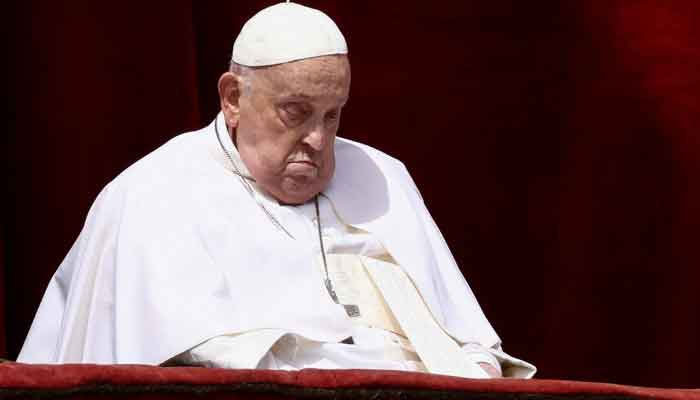Pope of the people
Francis appointment of 80% of cardinal electors who will choose next pope will hopefully ensure that his legacy will not pass with him
Pope Francis, aged 88, died on Monday – just one day after he made an appearance at St Peter’s Square on Easter Sunday. His passing comes at a time when a figure like him is sorely needed. The late pope, born Jorge Mario Bergoglio in Argentina, took over a deeply divided Vatican in March 2013, which also seemed to be suffering from a crisis of legitimacy under the staunchly conservative Pope Benedict. The latter’s shock resignation in 2013 paved the way for the appointment of Pope Francis, who many at the time considered to be an outsider. The Argentinian cleric, the first pope from Latin America, had been known for his concern for the poor and sought to project a simpler and humbler image as pope, refusing to take possession of the ornate papal apartments. Pope Francis in fact proved to be the very opposite of his predecessor, promoting progressive causes such as global peace, interfaith dialogue, the well-being and acceptance of migrants and even countering climate change. His commitment to encouraging help and aid for the global poor also remained unwavering. He was also very critical of capitalism, consumerism and right-wing populism.
Pope Francis’ progressivism was not limited to secular matters alone. The late pope sought to actually practice what he preached and changed the nature of the Roman Catholic Church itself, making women full members of dicasteries and expressing support for same-sex civil unions. In 2023, he also reportedly hinted at being open to reviewing the practice of celibacy among the clergy. A year earlier, he apologised for the Church’s role in the ‘cultural genocide’ of the Indigenous Peoples of Canada, the sort of historical accountability that is unthinkable in most Western leaders, political or otherwise. Sadly, this progressive pivot came at a cost. Pope Francis drew fierce criticism from more traditionalist members of the Church. However, it would be hard to argue that Pope Francis did not, generally, stand on the right side of most issues of global importance. The latest was the ongoing bloodbath in the Arab world. The pope was one of the few Western leaders to openly and frequently condemn the violence and call it what it was.
It is hard to dispute that Pope Francis spoke with greater moral clarity than most public figures of his time. In a world that increasingly appears to lack a moral compass – especially in light of the devastation wrought upon the Middle East and much of the Global South – Pope Francis stood out as perhaps one of the last few moral voices left. What made him even more extraordinary was that he himself did not come from the power centres of the Global North. He was a man from the Global South, and this informed his deep empathy, humility and sense of justice. His compassion and his uncompromising stance for peace and equity were rare qualities that have not been seen in global leadership for decades, if at all in recent memory. His appointment of around 80 per cent of the cardinal electors who will choose the next pope will hopefully ensure that his legacy will not pass with him. One can only hope that the man who picks up his role can continue further on the course set by the people of the people.
-
 Hilary Duff’s Son Roasts Her Outfit In New Album Interview
Hilary Duff’s Son Roasts Her Outfit In New Album Interview -
 Alexandra Daddario, Andrew Form Part Ways After 3 Years Of Marriage
Alexandra Daddario, Andrew Form Part Ways After 3 Years Of Marriage -
 Eric Dane Rejected Sex Symbol Label
Eric Dane Rejected Sex Symbol Label -
 Avan Jogia Says Life With Fiancee Halsey Feels Like 'coming Home'
Avan Jogia Says Life With Fiancee Halsey Feels Like 'coming Home' -
 Kate Middleton's Role In Handling Prince William And Harry Feud Revealed
Kate Middleton's Role In Handling Prince William And Harry Feud Revealed -
 Tucker Carlson Says Passport Seized, Staff Member Questioned At Israel Airport
Tucker Carlson Says Passport Seized, Staff Member Questioned At Israel Airport -
 David, Victoria Beckham Gushes Over 'fiercely Loyal' Son Cruz On Special Day
David, Victoria Beckham Gushes Over 'fiercely Loyal' Son Cruz On Special Day -
 Taylor Swift Made Sure Jodie Turner-Smith's Little Girl Had A Special Day On 'Opalite' Music Video Set
Taylor Swift Made Sure Jodie Turner-Smith's Little Girl Had A Special Day On 'Opalite' Music Video Set -
 Eric Dane Says Touching Goodbye To Daughters Billie And Georgia In New Netflix Documentary
Eric Dane Says Touching Goodbye To Daughters Billie And Georgia In New Netflix Documentary -
 Channing Tatum Reveals What He Told Daughter After Violent Incident At School
Channing Tatum Reveals What He Told Daughter After Violent Incident At School -
 King Charles Lands In The Line Of Fire Because Of Andrew Mountbatten-Windsor
King Charles Lands In The Line Of Fire Because Of Andrew Mountbatten-Windsor -
 Denise Richards Doubles Down On Abuse Claims Against Ex Husband Aaron Phypers Amid Show Return
Denise Richards Doubles Down On Abuse Claims Against Ex Husband Aaron Phypers Amid Show Return -
 Russia Set To Block Overseas Crypto Exchanges In Sweeping Crackdown
Russia Set To Block Overseas Crypto Exchanges In Sweeping Crackdown -
 Gwyneth Paltrow Reveals Deep Personal Connection With Kate Hudson
Gwyneth Paltrow Reveals Deep Personal Connection With Kate Hudson -
 Prince Harry, Meghan Markle’s Game Plan For Beatrice, Eugenie: ‘Extra Popcorn For This Disaster’
Prince Harry, Meghan Markle’s Game Plan For Beatrice, Eugenie: ‘Extra Popcorn For This Disaster’ -
 OpenAI To Rollout AI Powered Smart Speakers By 2027
OpenAI To Rollout AI Powered Smart Speakers By 2027




